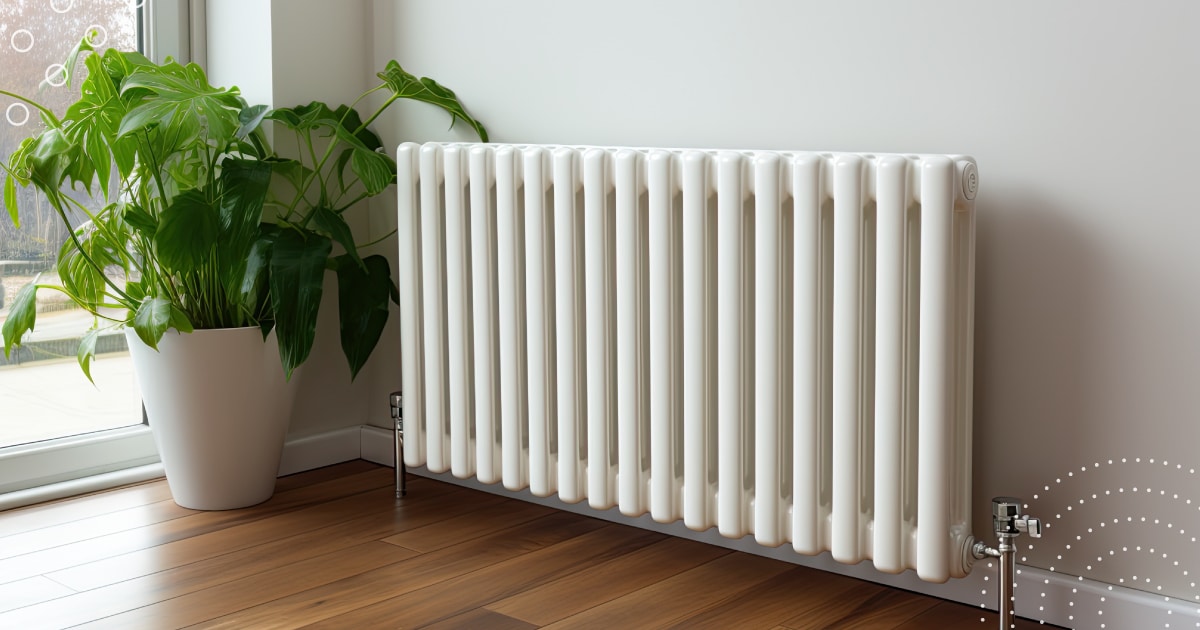Make Your Home Energy Efficient in 2024 - NEC Coop
Jan 28, 2024 — Energy Efficiency, Resources

Energy efficiency is about using less energy for the same tasks, which reduces waste and saves money in your home. Improving energy efficiency is more than just reducing energy use; it’s about understanding how energy is used, identifying areas of waste, and learning how to use energy more effectively in daily life.
While most Americans are aware of their financial status, many overlook their home’s energy dynamics. Just as you track your income and expenses, it’s important to understand the energy flowing in and out of your home. Whether it’s electricity, natural gas, or renewable sources, energy is constantly at work in your home, powering many gadgets, heating, cooling, and lighting. Recognizing and managing this energy flow can lead to significant benefits, both financially and environmentally.
Here are some energy efficiency tips to consider this year.
Benefits of Energy-Efficient Homes in 2024
- Cost Savings and Environmental Impact – LEED-certified homes, known for using 20%-30% less energy, can lead to potential savings of up to 60%. This not only eases your utility bills but also reduces your carbon footprint.
- Improved Air Quality – Energy-efficient homes boast superior indoor air quality, thanks to fewer pollutants. This is vital for a healthier living environment.
- Financial Incentives – Homeowners of LEED homes might be eligible for tax credits, reduced insurance premiums, and other incentives, balancing the initial costs of green construction.
- Utility Cost Reduction – A significant direct benefit is the reduction in electricity and utility costs.
- Comfortable Living Spaces – Enhanced insulation and moisture control in sustainable homes contribute to a more comfortable living environment.
- Increased Market Value – Homes with energy-efficient features often have a higher market value, with some real estate agents noting a 1%-10% increase in value.
Smart Home Automation
The rise of smart home devices, with predictions of 57% of Americans owning one by 2025, marks a significant shift towards energy efficiency.
Practical Tips for Energy Efficiency
Turning off lights you don’t need and setting your thermostat correctly are easy ways to save electricity. But, let’s look at some more tips for saving energy.
- Insulate Windows and Doors – This simple step can prevent heat loss and reduce heating costs.
- Unplug Energy Vampires – Devices that consume energy even when turned off should be unplugged.
- LED Lighting – Switching to LED bulbs is a cost-effective way to save energy.
- Sunlight Management – Use sunlight to your advantage for natural heating and lighting.
- Regular Appliance Maintenance – This ensures they operate efficiently, consuming less energy.
- Smart Thermostats – A great tool for managing your home’s heating and cooling systems efficiently.
- Water Heater Temperature – Lowering the temperature can lead to significant energy savings.
- Energy-Efficient Appliances – Investing in these appliances pays off in the long run with reduced energy consumption.
- Seal Air Leaks – Ensuring your home is airtight can prevent energy wastage.
Applying these energy efficiency tips and embracing a variety of energy conservation strategies can lead to marked reductions in your monthly energy bills. Not only does this help in saving costs, but it also extends the lifespan of your home appliances and reduces the likelihood of costly breakdowns. By making conscious choices today, you can ensure a more sustainable, efficient, and economically sound home for the future.
Sources:
“LEED certification for residential,” U.S. Green Building Council, https://www.usgbc.org/leed/rating-systems/residential
“Majority of Agents, Brokers Find Value in Promoting Energy Efficiency in Listings, According to NAR Report,” National Association of Realtors, https://www.nar.realtor/newsroom/majority-of-agents-brokers-find-value-in-promoting-energy-efficiency-in-listings-according-to-nar
“Smart home in the United States – statistics & facts,” Statista, https://www.statista.com/topics/6201/smart-home-in-the-united-states/#topicOverview
“Energy Vampire Devices; Where to Find Them, and How To Deal With Them,” Georgetown University, https://facilities.georgetown.edu/energizegu-2/energy-vampire-devices-where-to-find-them-and-how-to-deal-with-them/
“Go Green, Save Green: A Look Into How Smart Thermostats Save You Money,” NEC Co-op Energy, https://neccoopenergy.com/go-green-save-green-a-look-into-how-smart-thermostats-save-you-money/

